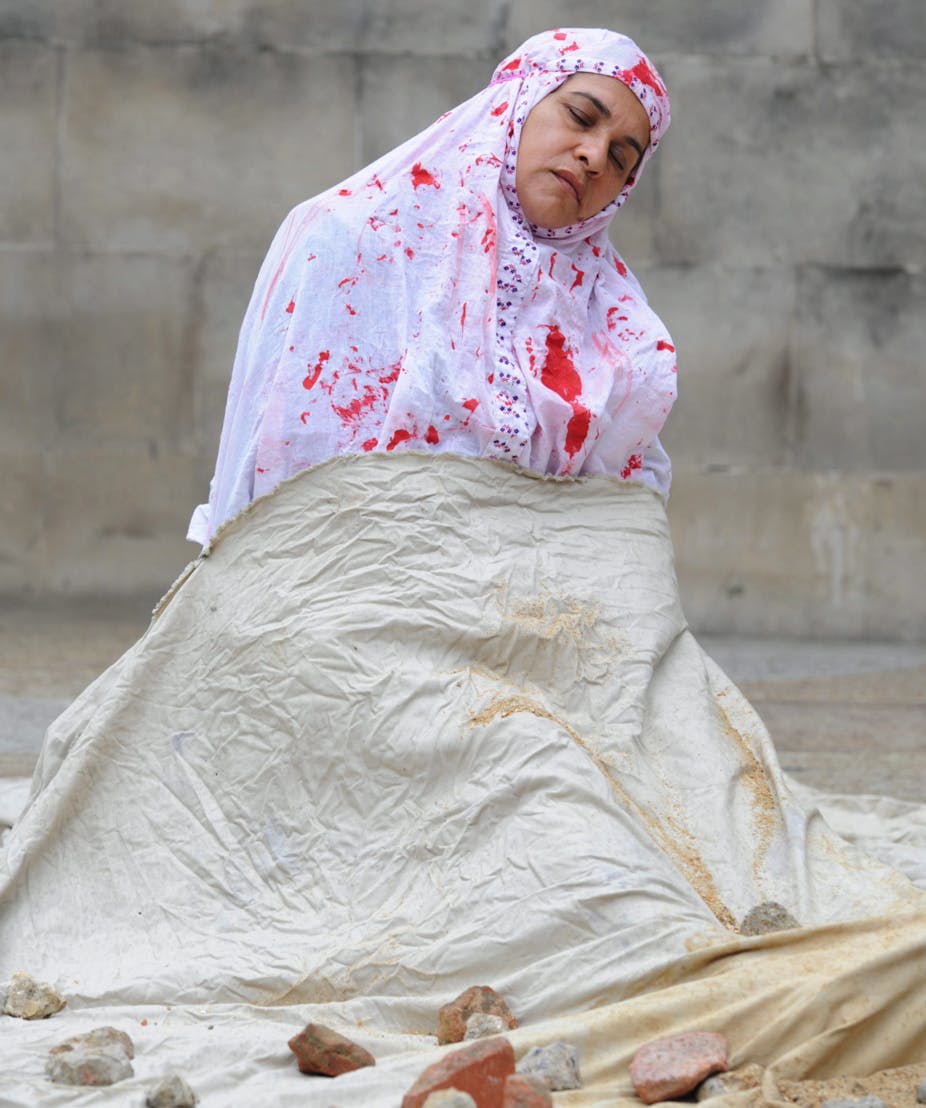Although Australia does not yet allow same-sex couples to marry, it is not a country that is generally described as homophobic. The days of it being a crime to be gay here are, thankfully, a relic of a bygone era. By and large, Australian laws protect lesbian, gay, bisexual, transgender and intersex (LGBTI) people from persecution and discrimination.
Unfortunately, the same cannot be said of our neighbours. Ten southeast Asian countries still treat homosexuality as a crime and things seem to be getting worse rather than better.
This trend is evident in Brunei’s recent decision to phase in Sharia law, which will soon make the “crimes” of gay sex and adultery punishable by death by stoning. The punishment for consensual same-sex sexual conduct in other southeast Asian countries ranges from fines to imprisonment and whipping, but Brunei will be the first in the region to introduce the death penalty for such “offences”.
Many LGBTI and human rights activists around the world have responded to these developments with boycotts of hotels owned by the Sultan of Brunei. These include the Dorchester in London and the Beverly Hills Hotel in California.

The fact that the Sultan also owns the Royal on the Park Hotel in Brisbane seems to have escaped everyone’s attention. This hotel is not the Sultan’s only investment in Australia. He owns the Opium Creek Cattle Station in the Northern Territory, 100 kilometres east of Darwin, and has a 19% stake in Patersons Securities, a stockbroking and financial services firms with 14 offices around Australia.
Brunei not only invests in Australian assets, it also has a significant trading relationship with Australia. We are Brunei’s fourth-largest export destination, accounting for 7.5% of all Bruneian exports.
Brunei has a substantial trade surplus with Australia. In 2012-13, Bruneian exports to Australia were worth A$979 million, whereas Australian exports to Brunei were worth only $46 million. The vast majority (over 99.5%) of Bruneian exports to Australia are crude petroleum.
How should Australia respond?
The significant trade relationship between Australia and Brunei suggests that Australia is well-placed to exert some influence over Brunei. It is important, however, that Australia not adopt a heavy-handed approach in sensitive matters such as LGBTI rights.
Barak Obama and other world leaders publicly condemned Uganda for enacting the Anti-Homosexuality Act earlier this year. The global outcry had the effect of hastening Ugandan president Yoweri Museveni’s signing of the bill, as he sought to demonstrate to his people that he would not be bullied by the west.

While not publicly reviling Brunei for its introduction of harsh Sharia laws that will potentially lead to the execution of gays, the Australian government should not ignore such developments on its doorstep. Foreign minister Julie Bishop should seek to engage in quiet diplomacy with Brunei that respects Brunei’s sovereignty, while at the same time calling for it to uphold universal human rights.
Australia should also not ignore the ongoing criminalisation of homosexuality in other southeast Asian countries. Governments are using such laws both to persecute LGBTI people and stifle political opposition.
For example, Malaysian opposition leader Anwar Ibrahim was recently sentenced to five years imprisonment for sodomy. Also, Sri Lankan MP Mangala Samaraweera alleges that the Rajapaksa regime has made false accusations of sodomy against him in an attempt to silence his criticism of the government.
Signs of hope in the region
It is not all doom and gloom when it comes to LGBTI rights in southeast Asia. Although Indonesia is still ranked as one of the most homophobic countries in the world, other Asian countries are faring better.
Taiwan has a new Alliance for LGBTI rights, which is educating voters about where politicians stand on same-sex marriage. The alliance aims to make Taiwan the first Asian country to legalise marriage for same-sex couples. And Vietnam’s National Assembly is this month considering amendments to the Law on Marriage and Family, which may legally recognise gay and lesbian couples for the first time.
Australia should not assume the role of a neo-colonial state, telling our neighbours what laws they can and cannot enact. We do not want to become the regional sheriff as US president George W. Bush once said in endorsing remarks by then prime minister John Howard. At the same time, Australia should not, by our silence, condone homophobia, regardless of where it occurs.
The best way to address these issues is the establishment of a regional human rights body that is empowered to monitor compliance with international human rights standards. Europe, Africa and the Americas all have such organisations. It is time the Asia-Pacific did as well.
There is no doubt that this region could do with a judicial or quasi-judicial body to protect and promote human rights, including the rights of people of diverse sexual orientations and gender identities.

